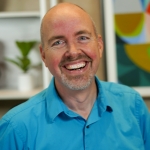
My computer geek colleagues are boasting about their humble beginnings by sharing lists of their first seven programming languages. You can find these under the hashtag #FirstSevenLanguages. COBOLPL/1SASIFPSAPL370 AssemblerCSQLLisp#FirstSevenLanguages — Paul Kent (@hornpolish) August 16, 2016 From what I've seen of these lists, the programming languages that appear are very


